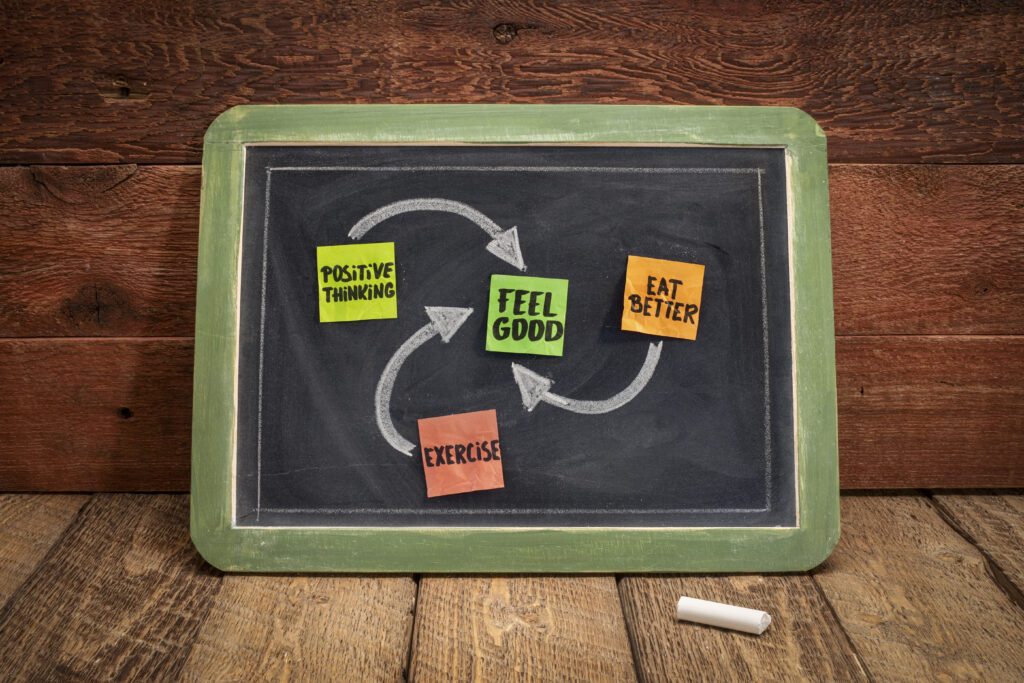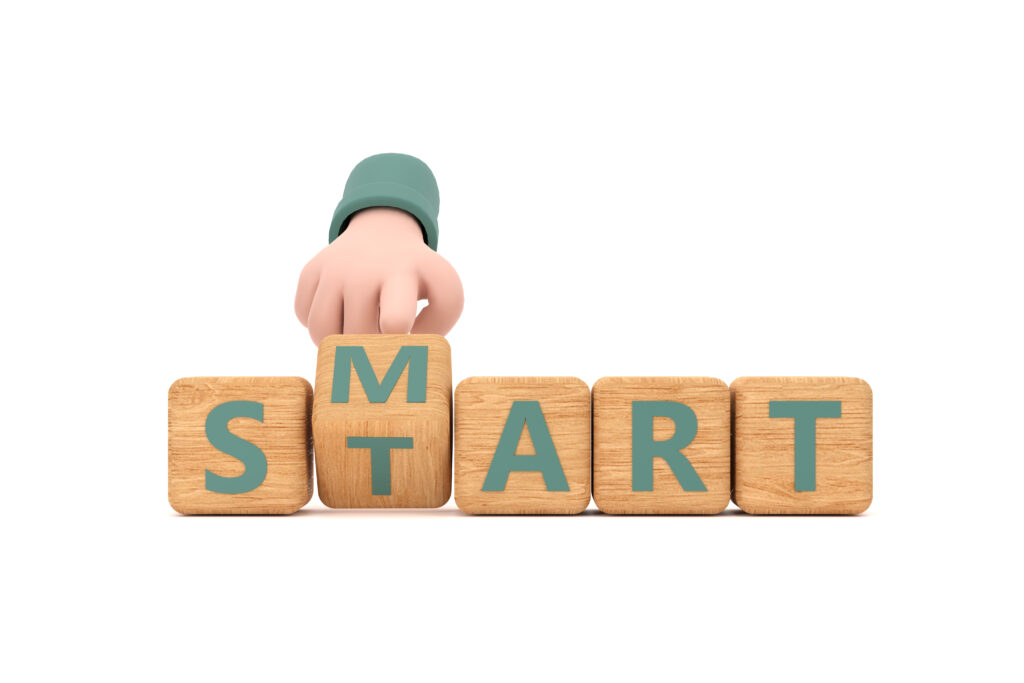The Power of Habit Formation

The alarm blares, a jolt that usually sends you fumbling for the snooze button. But today, there’s no groggy shuffle or desperate search for coffee. You move with purpose, slipping out of bed and into your morning routine as if on autopilot. The toothbrush finds your hand, the coffee brews itself, and even the bed somehow ends up made, all without you breaking a mental sweat. Tasks that inspired fear now unfold with ease. Each step falls into place like a well-rehearsed dance. Habit has taken over, transforming your morning from a struggle into a seamless glide.
In the first part of this series, we explored your mind. I discussed how to find your natural flow. This article will be an extension of that. Knowing your natural flow helps protect your mental health, which in turn boosts creativity. In the first part of this series, we examined your mind. We saw that an awareness of your natural rhythm can help preserve your mental health and enhance your creativity. Now that you understand your rhythm, we can ratchet things up. The ability to identify your patterns is one thing. Being able to weaponize them is another.
The word “habit” has several definitions, per Dictionary.com.
Here is a definition we will analyze: “a habit formed through repeated practice until it becomes instinctive.” Habits shape our minds with deliberate intention.
When I was younger, I loved nights. If given free rein, I’d stay up until four in the morning and sleep until noon. But having school-aged children isn’t conducive to that schedule, so I have had to adapt. I have since learned that if I couldn’t stay up all night, then I needed to go to sleep early and wake before the sun.
This doesn’t mean I wake up bright-eyed and bushy-tailed, but once I form the habit, I stop hitting the snooze button. Go in knowing that habits are hard to form and easy to break. I fight to regain my rhythm after disruptions. One night of insomnia can set my habit back by days or weeks. Habits are not something you can set and then forget; they require maintenance. But the benefits far outweigh the costs.
Let your routines keep you on track. Free up your brain for more important things like writing a novel, starting a business, or finding ways to avoid people. My goal is not to write a rehashing of all the things you already know about neurodivergence. To me, the neurodivergent space is full of empathy and solidarity, but few people are addressing natural coping mechanisms. I am not an expert. I’m the kind of person who won’t stop asking why until I understand. I’ll test every option until I find a way to make life easier. I hope you find something here that helps you.
Understanding the Habit Loop

To master habit formation, it’s essential to understand the Habit Loop. This framework breaks down how habits are formed and sustained over time.
What to Expect:
- Role of the Cue: The signal that triggers your habit.
- Establishing a Routine: How to automate behavior once the cue has been identified.
- Using Rewards: Leveraging the benefits that reinforce the habit loop.
Role of the Cue:
The cue is what triggers your habit. It could be an external trigger (such as the alarm clock) or an internal trigger (hunger or the creeping void of existential dread).
For neurodivergent individuals, identifying the right cue resembles a meticulous search, where each discarded item might conceal a valuable discovery.
Your cues should be customized to work with your brain – perhaps they’re visual reminders, or specific times of day, or tying habits to existing habits. They should beat you up with encouragement, not remind you that the world is a garbage fire.
Establishing a Routine:
A routine is the action you perform in response to the cue. The objective is to render it automatic, so that it feels almost like muscle memory. For those of the neurospicy persuasion, it can be particularly valuable to implement routines that take into account varied moods or energy levels, so that you are working with the ebb and flow of your body, not against it. For example, morning yoga might calm your nerves and set the tone for a zen-like day, while doom scrolling could feed into your inner chaos goblin. Choose routines that support your goals.
Using Rewards
Rewards are the incentives that keep you repeating the behavior. However, for many neurodivergent individuals, rewards can be tricky. What feels satisfying one day might not work the next. Choose rewards that fit your changing emotions. You might want a quick sense of achievement, an endorphin boost from exercise, or a moment of mindfulness. But your mind may drift to something awkward you did ten years ago.
Disclaimers for Neurodivergent Minds:
- Don’t rely too much on the cue: If you rely too much on a cue, the habit will feel like a task. Make your cue helpful but not oppressive.
- Customize Your Routines: What works for me won’t work for you. Tweak your routines to fit your needs and strengths.
- Maintain balance with rewards: The reward is important but shouldn’t become the sole focus. Let the habit itself be the long-term reward, with smaller nudges along the way to keep you going.
Step 1: Identify key habits for your routine.

But to make it sustainable, you need to identify the behavioral scaffolding that will form the cornerstones of your day. These are the must-do tasks that keep life on track. They allow for positive changes, or at least prevent you from sinking into chaos.
What to Expect:
- Essential Daily Tasks: Identify and organize the critical habits that keep your life running smoothly.
- Anchor Habits: Leverage existing habits to introduce new ones more seamlessly.
Essential Daily Tasks:
First, list all the things you do every day, and by which you must do them, i.e. eat, brush your teeth, put on clothes before leaving the house. This is your grunt work. This is boring shit. You must do these everyday tasks. They must be done. For neurodivergent people, it helps to identify what you do each day. It stops the game of “What Did I Forget to Do Today?” We perform routine tasks that preserve order, such as consuming meals and grooming. You’ll start to have a smidgen less crazy days, and have a tighter grip on what you’re doing day to day.
Anchor Habits:
After you nail your foundational habits, you can stack new habits on top of routines you already do without much thought. We call this habit stacking. It’s a powerful way to tie a new habit to a familiar one. If you brew your coffee every morning, stretch while your cup is brewing. For neurodivergent minds, this strategy is a game changer. It cuts the mental effort of starting a new behavior. We make the new habit feel like second nature to our brains. Brains switch between tasks with fluid transitions.
This way, you can identify your core habits and anchor new behaviors to them. You can create the kind of scaffolding that makes your routine feel doable and familiar. This, in turn, can help to reduce overwhelm and keep things sustainable. With strong daily habits, adding a new behavior feels easier. It feels like an extension of what’s already working. It allows incremental introductions of features, preventing exhaustion.
Disclaimers for Neurodivergent Minds:
- Prioritize Essentials: First, focus on non-negotiable habits for your well-being. Then, add more.
- Make use of habit stacking: The less mental energy required, the better. Link your new habits to established ones to keep the momentum going.
- Don’t overcomplicate: focus on making habits feel natural, not forced. Keep it simple and sustainable for the long run.
Step 2: Start small and build gradually.

New habits can’t be built in a day, of course. Divide actions into tasks that integrate easily into daily routines. It’s habit formation for dummies – the dummy, of course, being you and your brain. But it’s training wheels for the brain. Keep setting bite-sized goals and, so long as you’re making progress, you’ll only want more. Beware, though, of too many at once. I know because I’ve tried. Trying to reinvent your life in one go is the equivalent of trying “get rich quick” schemes. Too good to be true and bound to end in disaster.
What to Expect:
- Small, Manageable Actions: Begin with micro-steps that even your most procrastination-prone self can handle.
- Goal Setting and Progress Tracking: Such small wins give your brain a dopamine hit. Keep going!
- DON’T BOIL YOUR BRAIN: Pick only one or two habits at a time to keep from overloading your mind.
Small, Absurd Actions:
The key to habit formation? Start so small you’ll laugh. Want to begin an exercise regimen? Start by doing one push-up a day. It’s absurd enough that you’ll be unlikely to say no. For neurodivergent folks, this is a mandatory strategy, one that bypasses the overwhelm that turns a simple goal into a Herculean one. When the action is tiny, it sneaks past your brain’s defenses and gets done before your mind has time to argue.
Set small, achievable goals:
Don’t go for ‘write a novel in a month’, think more like ‘write one paragraph a day’) 4. Track that progress. Give yourself a virtual high-five with every small victory. These small wins help to create the positive feedback your brain craves to keep you coming back for more. They represent the highest tier to achieve a fulfilling existence.
Simplify:
We often stumble by attempting excessive tasks at once. Don’t allow yourself a habit buffet; don’t think you’ll revolutionize your life in seven days. Trust me, I’ve done that, and it left me more burned out than revved up. Pick one or two habits, and let them breathe. Neurodivergent minds face a challenge called ‘sensory overload.’ Too many changes at once will make your brain short-circuit faster than a 1990s computer running modern software.
And building habits takes time, patience, and a process that works for you. Keep things small – especially when you’re starting out – and focus on one or two things at a time. Allow room for adaptation. Small, steady progress beats trying to overhaul everything at once. Form habits that persist and become second nature over time. Celebrate your wins, track your progress, and let the habit itself become the reward over time.
Disclaimers for Neurodivergent Minds:
- Don’t rush the process: take it slow. Too much too soon can cause overwhelm, but any bit of progress, no matter how small, is still progress.
- Avoid Perfectionism: Perfection isn’t the goal. Mistakes are part of the process—focus on consistency, not flawlessness.
- Adapt to Your Energy: Adjust your habits to match your energy levels. On low-energy days, simplify routines to stay consistent without overexerting.
- Celebrate Small Wins: Regularly reward yourself for small victories to keep your motivation high. Frequent, small celebrations keep you on track.
Step 3: Reinforce with Rewards

Rewards are key to reinforcing habits. They encourage you to repeat the behavior. Select rewards that align with your values and consider their neurological effects. Celebrating small wins is key to staying motivated, but don’t go overboard. The reward should be equal to the task. Going overboard can diminish the habit’s intrinsic value. You want the habit to be its own reward over time.
What to Expect:
- Role of Rewards: Understand how rewards reinforce your habits.
- Immediate and Long-Term Rewards: Ideas for both quick gratification and sustained motivation.
- Celebrating Small Wins: Keep spirits high with small celebrations along the way without losing sight of the big goals.
Role of Rewards:
Rewards give us dopamine. The reward is the brain’s way of saying, ‘Yes! Demand repeats! These are the advanced stages to master for a fulfilling life, not just prestige. If you do your morning yoga, you can listen to your favorite song or drink some fancy tea.’
Immediate rewards vs. long-term rewards:
Immediate rewards immediately satisfy you. Long-term rewards sustain you over time. Immediate rewards might be something as simple as five minutes of your favorite game or a piece of dark chocolate. Long-term rewards might be more substantial, such as rewarding yourself with a new exercise routine. Neurodivergent minds often respond well to immediate rewards. But, it’s important to balance them with long-term incentives that align with your bigger goals. For example, to build a writing habit, reward yourself. A short break after 15 minutes of writing is an immediate reward. A weekend retreat after finishing a draft is a long-term reward.
Celebrating small wins and feeling accomplished helps keep momentum. Building habits takes time, patience, and a process that works for you. Keep things small – especially when you’re starting out – and focus on one or two things at a time. Allow room for adaptation. Instead, keep celebrations simple and related to the habit. Acknowledge your progress with a moment of self-praise or a small treat, but remember that the ultimate reward is the habit’s benefits in your life. In time, the habit should reward itself. It will reinforce your commitment without needing constant outside incentives.
Disclaimers for Neurodivergent Minds:
- Avoid overemphasizing rewards: Excessive early gains induce overwhelm, yet every advancement counts.
- Make Rewards Work for You: What works for others may not work for you. Create rewards that generate sincere feelings of happiness and motivation.
- Balance is Everything: We can get too focused on the rewards, or we can forget about the habit and focus on the reward. Make sure your focus is on the habit, not the reward. Rewards should be a ‘nudge’ rather than the engine.
Step 4: Overcoming Challenges and Staying Flexible

Your path is going to be a zig-zagging route, with potholes and detours and wrong turns that you have to expect as best you can and plot your way around. That’s what it means to maintain flexibility. When you struggle with self-regulation, be compassionate with yourself about this. For neurodivergent people, self-compassion prevents fixed mindsets. These can cause frustration and burnout.
What to Expect:
- Anticipating Obstacles: Learn to foresee and address challenges in your habits’ journey.
- Staying Flexible: Understand the importance of adapting your habits as circumstances change.
- Self-Compassion: Embrace setbacks with kindness and avoid the trap of self-criticism.
Expect mistakes:
Barriers are bound to arise, but they needn’t derail you. Anticipating obstacles – time limits, low energy, a tendency to procrastinate, or a lack of enthusiasm for a task – can help. The idea is to prepare yourself and to have a back-up plan. If you tend to get distracted in the afternoon, plan a short, energizing break. Or, set a time limit to complete a task. When facing obstacles, neurodivergent minds can help themselves. They can break the obstacles down into smaller parts. Then you can address each one with a clear strategy. If a problem concerns consistency, setting an alarm or enlisting a buddy for accountability would be helpful.
Stay flexible:
Inflexibility is the enemy of long-term habit success. Clutching a habit too tightly causes exhaustion. Neurodivergent individuals are more prone to this. They resist sudden shifts and feel overwhelmed by packed routines. If you find a habit isn’t working for you, then don’t be afraid to bend it to your own will. Perhaps your morning routine needs to shift to the evening. Or perhaps your workout needs to be shortened on your busiest days. A habit should adapt to you, not you adapt to the habit. Flexibility also means being willing to shift your approach when something isn’t working. Experiment until you find the method that clicks.
Self-Compassion:
Self-compassion is vital when facing disappointments. They are common for neurodivergent people. Neurodivergent people can magnify self-expectations. When something goes wrong, it can signal a downward spiral of negative self-appraisal. However, setbacks are normal when developing new habits. Instead of berating yourself, mentally acknowledge what happened, learn from it, and move on. When you rethink your approach, it can help to stop, reset, redefine goals, or recognize when progress is not consistent. Treat yourself in a way that you would treat a friend who is struggling.
Disclaimers for Neurodivergent Minds:
- Expect Obstacles: Challenges are inevitable. But breaking them into small steps can prevent overwhelm.
- Adapt to changes: Loosen your grip on established schedules. Allow habits to shift and adapt to your current needs without guilt.
- Compassion Over Criticism: Self-compassion is crucial when facing setbacks. Instead of self-criticism, view challenges as opportunities to refine your approach.
- Balance Adaptation and Consistency: Flexibility is key. But ensure that changes support your goals, not a reason to abandon them.
Step 5: Automating Your Creative Process

Using habit formation principles can transform your creative work. It’ll change how you approach and sustain your creative efforts. Automating parts of your creative process boosts efficiency and reduces mental strain. This makes your creative time more productive and enjoyable.
What to Expect:
- Designating Creative Time: Allocate specific times for creative work.
- Developing Pre-Creative Rituals: Establish routines that prepare you mentally and physically for creativity.
- Using Tools: Employ tools and techniques to automate and simplify the creative process.
Designating Creative Time:
Like any other habit, creative work benefits from regular scheduling. Choose times that match your natural rhythms. Whether you’re a morning person or a night owl, consistency is key. Setting aside time for creativity reduces decision fatigue. It also helps to build a routine. For neurodivergent individuals, set times for creativity help. They create structure and reduce the effort needed to start. If possible, use reminders or calendar alerts to reinforce your schedule. They will help hold you accountable.
Developing Pre-Creative Rituals:
These are actions that signal to your brain to prepare for creativity. These might include a certain playlist, a cup of your favorite tea, or a short meditation. A ritual helps. It makes your brain link certain actions with a creative mindset. For instance, if you start each session with a short yoga stretch or a certain music track, your brain will link it to your creative work. It will then be easier to get into the zone.
Using Tools:
Automating parts of the creative process can boost efficiency. Use tools like project management apps and writing software with prompts. You can also use automation scripts to handle repetitive tasks. For example, Scrivener can help organize your writing. Your time-tracking app will guarantee that you spend sufficient time on your imaginative work. Automating your boring tasks will allow your mind to breathe and pave the way for creativity. It also cuts the burnout risk.
Disclaimers for Neurodivergent Minds:
- Customization is based on personal preferences and needs. Try different methods. Find what boosts your creativity without stress.
- Don’t overschedule: While routine is key, not all tools and rituals work for everyone. Choosing those that resonate with you is helpful; too much of it can lead to burnout. Allow for some fluidity in your time for creativity and pay attention to how much structure you’re imposing.
- Balance Rituals and Spontaneity: Pre-creative rituals should enhance, not constrain, your creativity. A ritual that turns into a strict requirement generates extra tension. Ensure that your rituals serve as a boost rather than a barrier.
Conclusion: The Long-Term Impact of Habit Formation

Your habits are polished, and your creative process unfolds effortlessly. The once-daunting tasks are now second nature. Each action is now part of your routine. The mental load of decision-making has been lifted, allowing your creativity to flourish with less effort. The morning struggle to get out of bed is now automatic. Your creative sessions are now productive and fun.
In this series, we’ve explored how habit formation is not a strategy but a powerful tool for reducing mental effort and enhancing creativity. You can turn habits into effortless routines. To do this, understand the habit loop. Start small. Use rewards to reinforce your progress. Overcome challenges. Automate your creative process. This shift doesn’t only streamline your day—it nurtures a more sustainable, enjoyable creative journey.
The path to forming good habits isn’t about perfection. It’s about consistency and adaptability. Embrace the process with patience, acknowledging that habits take time to build and maintain. Celebrate your progress, no matter how small, and allow flexibility to adjust your strategies as needed. The key is to create a routine. It must respect your neurodivergent needs. It should also boost creativity and reduce mental strain.
In the end, mastering habits is about making your day-to-day life more manageable and your creative work more fulfilling. These habits will improve your efficiency. They will also create a more vibrant, sustainable creative practice. Keep refining your approach, stay adaptable, and let the power of habit support your creative journey.







